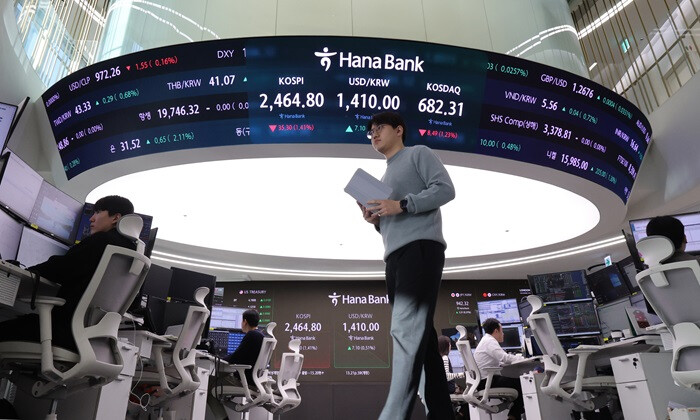
Seoul, South Korea – Individual investors in South Korea are rapidly withdrawing their funds from the domestic stock market, marking a significant decline in participation since the height of the "Donghak Gangjeong" movement. This trend is being driven by a combination of political instability, economic concerns, and the allure of overseas markets.
The proportion of trading volume on the Korea Composite Stock Price Index (KOSPI) attributable to individual investors has fallen to its lowest level in five years, dropping to 43.61% in December. This represents a substantial decrease from the peak of 67.14% reached in July 2020.
The "Donghak Gangjeong" movement, a patriotic surge of retail investors supporting domestic companies during the COVID-19 pandemic, had seen a significant influx of funds into the Korean stock market. However, recent political turmoil, including impeachment proceedings against President Yoon Suk-yeol, coupled with concerns over the country's economic outlook, has eroded investor confidence.
As a result, many South Korean investors are turning to overseas markets, particularly the United States, in search of higher returns. The average daily trading volume of South Korean investors in overseas markets has surged to nearly a third of the KOSPI's daily trading volume.
Analysts attribute this shift to several factors, including:
Political instability: The ongoing political turmoil in South Korea has created uncertainty and discouraged domestic investment.
Economic concerns: Slowing economic growth, coupled with the looming threat of a global recession, has dampened investor sentiment.
Attractiveness of overseas markets: The strong performance of overseas markets, particularly in the United States, has lured South Korean investors seeking higher returns.
The decline in domestic investment has been particularly pronounced in the technology sector, where the underperformance of Samsung Electronics has weighed heavily on the KOSPI.
Experts warn that the trend of South Korean investors fleeing the domestic market is likely to continue unless there is a significant improvement in the country's political and economic outlook. The sustained strength of the U.S. dollar and the relatively weak performance of the Korean won are also expected to exacerbate capital outflows.
[Copyright (c) Global Economic Times. All Rights Reserved.]






























